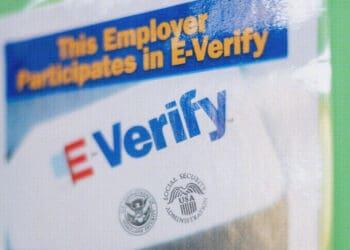What You Need to Know
Within the last few months, employers have begun to be assessed fines by the IRS in Letters 226J for not complying with employer shared responsibility payments (ESRPs) dating back to 2015. Employers have 30 days to challenge or accept an ESRP penalty. While there is nothing they can do to prevent penalties from 2015, employers should make sure to submit all applicable 2018 tax forms in a timely manner to not repeat prior mistakes.
Beginning in November 2017, employers began to receive Letters 226J from the IRS regarding potential liability for employer shared responsibility payments (ESRPs) pursuant to the Affordable Care Act’s employer “play-or-pay” mandate. The first of these letters proposed and assessed Section 4980H(a) penalties for 2015 — the first year “applicable large employers” (ALEs) could be assessed ESRPs. Since then, employers began to be assessed penalties for noncompliance of Section 4980H(b), which has the potential to cover a much broader group of employers.
Types Of Penalties
There are two types of ESRPs: Section 4980H(a) and (b) penalties. An (a) penalty may be assessed when an ALE does not offer minimum essential coverage to at least 95 percent of its full-time employees, and at least one full-time employee receives a premium tax credit (PTC). However, for 2015, there was transitional relief so that ALEs only had to offer coverage to at least 70 percent of their full-time employees to avoid the (a) penalty.
A (b) penalty may be assessed if an ALE offers minimum essential coverage to at least 95 percent of its full-time employees, but at least one full-time employee receives a PTC because the particular coverage offered was not considered affordable and/or did not provide minimum value.
The Letter 226J
Letter 226J will include:
- an explanation of the penalty;
- a table summarizing and itemizing the proposed payment for each month;
- a response form (Form 14764);
- an Employee Premium Tax Credit (PTC) Listing (Form 14765), which lists by month all of the employer’s full-time employees who received a Marketplace subsidy and were not reported as being offered employer coverage that met an affordability safe harbor; and
- a description of the actions the employer should take, depending on whether it agrees or disagrees with the proposed payment.
Challenging an ESRP Assessment
In general, ALEs have 30 days to challenge or accept an ESRP penalty. In our experience, the IRS has been very reasonable in granting extensions of between 30 and 60 days. If the IRS does not receive a response by the due date, it may issue a Letter 5040-J, requiring payment within 15 days.
If an ALE challenges an ESRP penalty, it should explain in writing why the penalty does not apply. Many times, this requires describing errors on Forms 1094-C and/or 1095-C. When possible, it is preferable to provide supporting documentation. On occasion, when ALEs challenged the (a) penalties and the IRS ultimately agreed that the ALE had offered minimum essential coverage to at least 70 percent of their full-time employees in 2015 and avoided (a) penalties, the IRS then went on to assess (b) penalties instead.
(b) Penalty Assessments Received
Within the last few months, ALEs began to receive Letters 226J relating solely to (b) penalties for 2015. Prior to this, we had not seen IRS send Letters 226J that did not involve (a) penalties. This is significant, because it could mean that most of the 2015 (a) penalty letters have already been sent.
It is also significant because (b) penalties will likely impact a much broader range of ALEs.
Appealing IRS Penalties
After an ALE responds to a Letter 226J, the IRS will respond with a Letter 227. These Letters 227 may include a revised proposed penalty (Letter 227L) or inform the ALE that it does not owe a penalty at all (Letter 227K). If a Letter 227K is received, the case is closed and no response is required. If an ALE receives a Letter 227 and the ALE disagrees with the revised proposed assessment, it may request a pre-assessment conference with the IRS Office of Appeals. Depending on the ALE’s reasons for disagreement, it may be worthwhile to have a conference with the IRS Office of Appeals; in other instances, it may be preferable to immediately and formally appeal the matter. How an ALE appeals the matter will depend on the amount of the assessed penalty. If the amount of the assessed penalty is $25,000 or less, ALEs will be directed to make a small case request. If the assessed penalty is greater than $25,000, a formal written protest will have to be submitted.
Next Steps
At this point, there is not much employers can do to prevent the penalties for the 2015 tax year. Since the opening of the Marketplace in 2014, many employees have misunderstood their eligibility for subsidies, and many may have improperly applied for these subsidies. Thus, a number of complying ALEs may receive Letters 226J.
The process for responding to a Letter 226J assessing a (b) penalty will not differ significantly from responding to a letter assessing an (a) penalty. However, given the technical nature of these forms and potential for significant exposure, it may be beneficial to get legal counsel involved in the drafting of the response and any negotiations with the IRS, as in most instances there are legal and factual arguments to be made.
If you have received a Letter 226J for 2015, you may now be aware of issues with subsequently filed Forms 1094-C and 1095-C. These are the Forms that employers file with the IRS to inform them of the coverage that was provided to their full-time employees. As such, there may still be time to review and submit amended Forms for the 2016 and 2017 tax year to avoid getting another round of Letters 226J. Additionally, the 2018 Forms 1094-C and 1095-C will be due early in 2019, so at the least, it would be worthwhile to review previously filed Forms to identify potential issues and not repeat those mistakes.









